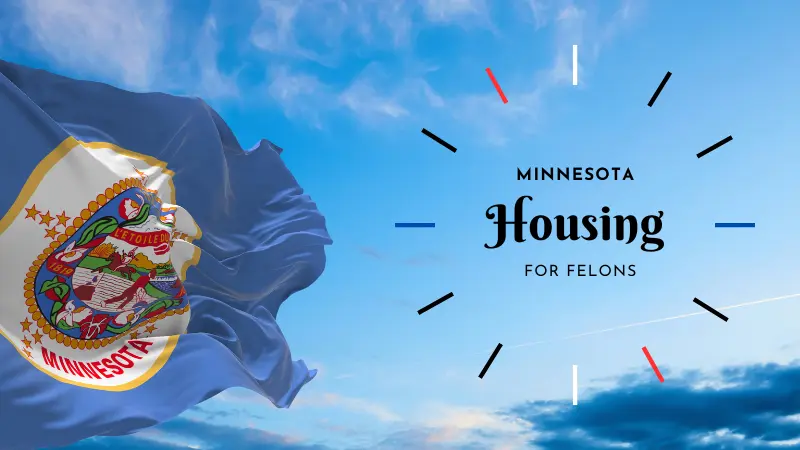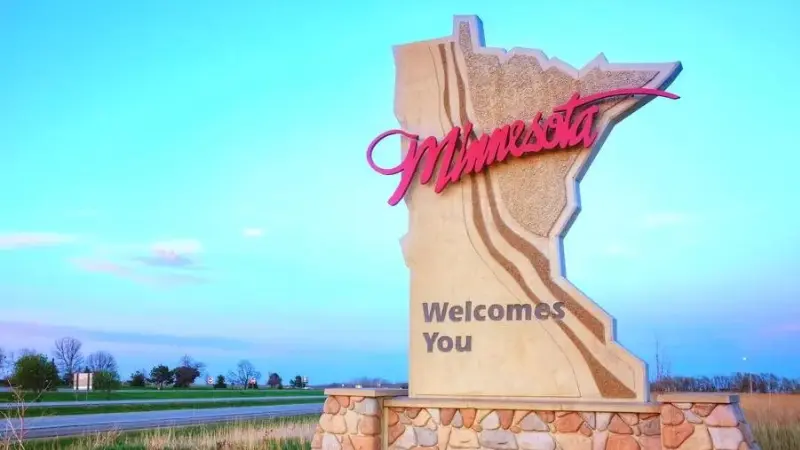Finding suitable housing can be challenging for individuals with a criminal record, especially in a state like Minnesota. Felons often face numerous challenges, including discrimination, limited rental options, and strict screening processes. However, in recent years, there have been legislative efforts and community initiatives aimed at promoting felon-friendly housing in Minnesota. This post is designed to examine the landscape of felon-friendly housing in the state, examining the obstacles felons encounter, the legal protections in place, and various programs and organizations dedicated to supporting felons in their search for stable housing.
Felon Friendly Housing In Minnesota

Living with a felony conviction is challenging enough, but finding stable housing can feel like an impossible task for many individuals in Minnesota. The impact of housing instability on individuals with felony convictions is profound. Without a secure place to call home, it becomes increasingly difficult for them to reintegrate into society, secure employment, and build a better future.
Facilitating the successful re-entry of individuals with felony convictions into society is essential for reducing recidivism rates. Access to stable housing plays an important role in this process. It provides a foundation for stability, self-sufficiency, and a sense of belonging. By addressing the issue of felon-friendly apartments, Minnesota can create opportunities for successful reintegration and contribute to safer and more inclusive communities.
Legislative Efforts To Promote Felon-Friendly Apartments In Minnesota
Minnesota has implemented laws and regulations to protect felons from housing discrimination. The state’s Human Rights Act prohibits landlords from denying housing solely based on a person’s criminal background unless there is a direct relationship between the offense and potential harm to the property or other residents. This ensures a fair chance for felons to access housing opportunities.
There are ongoing advocacy efforts in Minnesota to further support felons in their housing search. Various organizations, activists, and lawmakers are pushing for policy changes that would enhance the availability of felon-friendly housing options. These changes could include greater incentives for landlords to consider renting to individuals with criminal records or providing financial assistance for felons seeking housing.
Nonprofit Organizations Assisting Felons With Housing Needs
Several nonprofit organizations in Minnesota are dedicated to helping felons find stable housing. These organizations offer support services such as transitional housing, rental assistance, and case management to navigate the challenges of securing housing with a criminal record. They also provide resources for job training, education, and other necessary support systems to aid in successful reintegration.
The government has implemented initiatives and housing assistance programs to support felons in Minnesota. These programs aim to provide financial aid for rental payments, and security deposits, and even help with finding suitable housing options. The goal is to ensure that felons have access to safe and affordable housing, which is crucial for their successful reintegration into society.
Rights And Protections For Felons Seeking Housing In Minnesota
Felons in Minnesota have certain rights and protections when it comes to seeking housing. Understanding fair housing laws in the state is crucial for both landlords and individuals with a criminal record.
The Minnesota Human Rights Act prohibits housing discrimination based on race, color, religion, sex, national origin, familial status, disability, and, importantly, criminal background. Landlords cannot refuse to rent to someone or evict someone solely because of their criminal record.
While landlords cannot automatically disqualify someone based on their criminal record, they can still consider other factors such as the nature and seriousness of the offense, the time that has passed since the conviction or release, and evidence of rehabilitation. Felons need to be prepared to explain their criminal background and provide evidence of their efforts toward rehabilitation and positive change.
Discover how to get housing in other states:
Strategies For Felons To Improve Their Housing Prospects
-
Acquiring Skills And Maintaining Stable Employment
Stable employment is often a key requirement for landlords. By developing job skills, obtaining certifications, or furthering your education, you can enhance your employability and demonstrate to potential landlords that you’re committed to building a stable and law-abiding life.
-
Transitional Housing Options
Transitional housing programs specifically designed for individuals with criminal records can be a stepping stone toward finding permanent housing. These programs often offer temporary accommodation, counseling, job assistance, and other support services that can help felons transition successfully into independent living.
-
Section 8 Housing
While eligibility varies, individuals with felony convictions are not automatically disqualified from Section 8 housing. Check with your local housing authority for specific information on their policies.
-
Private Landlords
Some private landlords may be more flexible when it comes to renting to individuals with criminal records. Be honest about your background and be prepared to explain any rehabilitation efforts you’ve made.
-
Legal Assistance
Consult with a legal aid organization or attorney who specializes in housing and criminal records. They can provide advice on your rights and options.
-
Network
Seek assistance from local reentry support groups, social services agencies, or nonprofit organizations that focus on helping formerly incarcerated individuals.
-
Be Honest
When applying for housing, be honest about your criminal history. Some landlords may be more understanding if you are upfront about your past and can demonstrate that you are working towards rehabilitation.
Affordable Places To Live In Minnesota
Minnesota offers a range of affordable places to live, but affordability can vary depending on the location, your specific needs, and preferences. Here are some cities and regions in Minnesota known for their relatively affordable housing options:
1. Duluth
Located in northern Minnesota along Lake Superior, Duluth offers a lower cost of living compared to major metropolitan areas like Minneapolis and St. Paul. It’s known for its natural beauty and outdoor recreational opportunities.
2. Rochester
Home to the world-renowned Mayo Clinic, Rochester has a relatively affordable housing market compared to larger cities in the state. It also boasts a strong job market and quality healthcare services.
3. Mankato
This city in southern Minnesota has a lower cost of living, making it an attractive option for students attending Minnesota State University, Mankato, and families looking for affordable housing.
4. St. Cloud
Located in central Minnesota, St. Cloud offers a more affordable housing market than the Twin Cities metro area. It has a diverse community and is known for its educational institutions.
5. Bemidji
In northern Minnesota, Bemidji is known for its scenic beauty and outdoor activities. The cost of living tends to be lower than in larger urban areas.
6. Winona
Situated along the Mississippi River, Winona is known for its cultural events and outdoor recreational opportunities. It offers a relatively affordable cost of living for its residents.
7. Suburban Areas
Consider suburbs surrounding the Twin Cities, such as Brooklyn Park, Maplewood, or Eagan. While they are close to the urban amenities of Minneapolis and St. Paul, housing costs may be more reasonable than in the city centers.
Conclusion

As Minnesota continues to address the challenges faced by felons in accessing housing, there is hope for a more inclusive and rehabilitative approach. Efforts to promote felon-friendly housing, through legislation, advocacy, and community support, have already made a positive impact. By recognizing the rights and protections of felons seeking housing, and by providing resources and opportunities for their successful reintegration into society, Minnesota can pave the way for a brighter future. With continued dedication and collaboration, we can strive to create a society where individuals with criminal records have equal opportunities to secure stable housing and build meaningful lives.